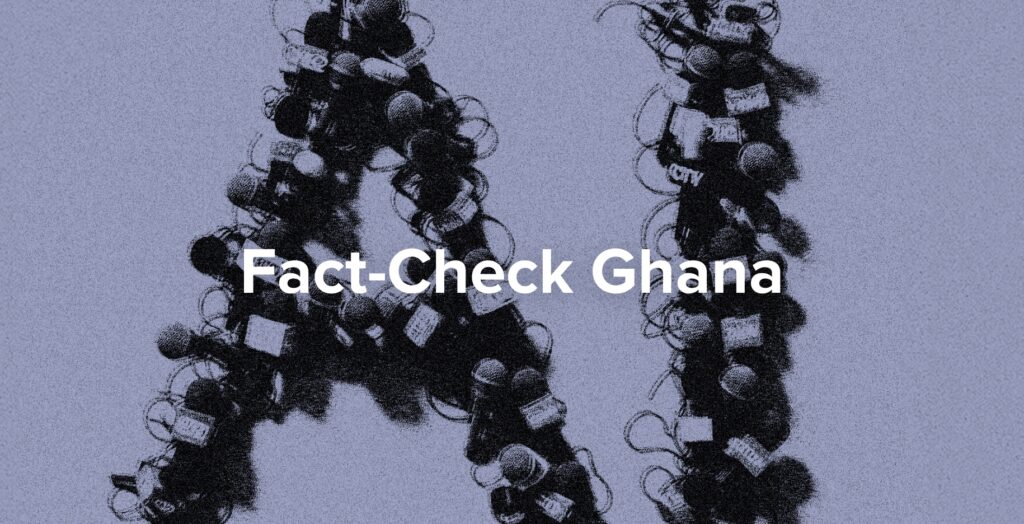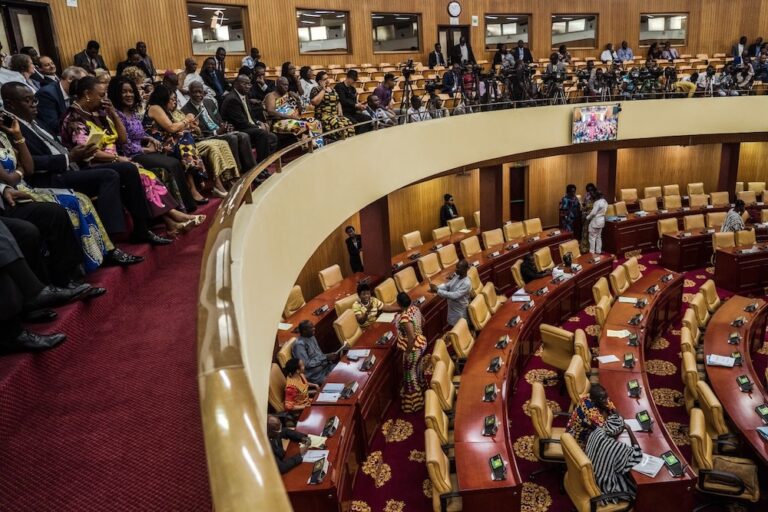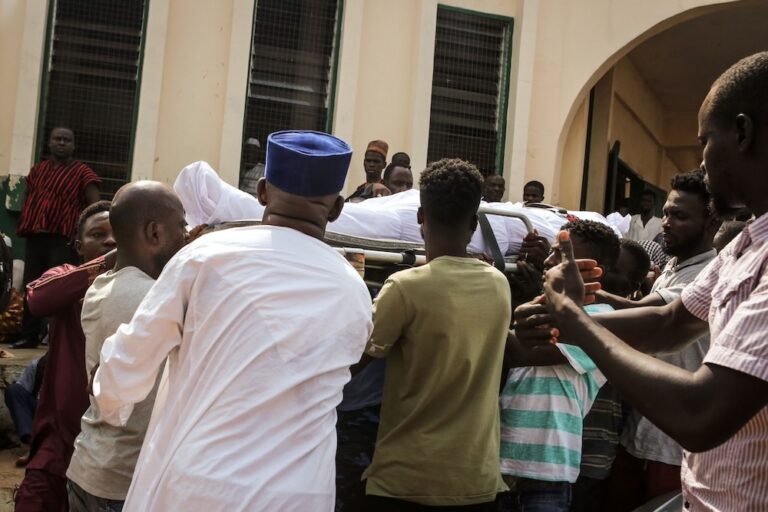As AI-powered disinformation threatens to unravel decades of Ghana's democratic progression, we spoke with MFWA's Kwaku Krobea Asante about how Fact-Check Ghana leverages coalition, context, and community.
Over the last three decades, Ghana has dramatically improved on its former reputation as a country “mired by chronic political instability, military coups, and repressive authoritarian rule” to emerge as a beacon of democracy on the African continent.
However, challenges remain. These include political bias, weak media access, incomplete decentralisation, exclusionary practices in traditional leadership, and inadequate stakeholder consultation in governance and development. As elections draw closer, these discords, which usually bubble under the surface, rise and expose a highly competitive and increasingly polarised political system that threatens to fragment the fabric of the country’s democratic gains.
In these high-stakes settings, the country’s landscape is further inflamed by sophisticated disinformation campaigns, fuelled by social media manipulation and artificial intelligence, used to intentionally spread false information, disrupt debates, and silence dissent. The growing sophistication and the speed with which the creation and circulation of deepfakes and disinformation have been boosted by artificial intelligence culminate in the erosion of public trust even before a single vote is cast.
As Ghana headed towards the December 2024 presidential and parliamentary elections, a coordinated disinformation campaign emerged on X (formerly Twitter). It featured a network of AI-generated bot accounts that mimicked real users with AI-generated profile photos and generic usernames. These bots employed carefully timed posting schedules to create the illusion of widespread grassroots support, specifically promoting Vice President Mahamudu Bawumia, through hashtags like #1TouchForBawumia and #BawumiaForPresident, while simultaneously discrediting opposition leader John Mahama with tags such as #IncompetentMahama and #FailedMahama.”
It is within this shaky setting that Fact-Check Ghana – first launched back in 2016 – has evolved and emerged as a formidable force on the information integrity landscape. By providing verified, accurate, and timely information, this platform was able to counter falsehoods while contributing towards the credibility of Ghana’s democratic discourse. It fortified its role as a democratic suture that stitched together the ruptures caused by mis/disinformation, political propaganda, and public distrust.
Collaborative coalition versus solitude of silos
Fact-Check Ghana bolstered its impact and credibility early on by forming a coalition with respected organisations, including Dubawa Fact Check, FactSpace West Africa, Africa Check, CDD-Ghana, and the West Africa Network for Peacebuilding, leveraging their existing trust and reputation in countries like Ghana and Nigeria.
“We realised we couldn’t work in silos anymore and no single organisation can address the scale and complexity of the problem alone. The problem is decentralised and sophisticated. So we had to be, too, explained Kwaku Krobea Asante, Fact-Check Ghana’s Team Lead and manager of the Independent Journalism Project at the Media Foundation for West Africa (MFWA).
This laid the groundwork for the creation of a collaborative media situation room serving as a central hub for verification of claims, monitoring disinformation, and coordinating rapid responses. For eight consecutive days during the 2024 pre- and post-election period, the coalition mapped disinformation trends, identified key actors, and flagged threats to electoral integrity. “We were tracking the information problem – its themes, its dimensions, the bad actors, the targets, and the tactics they were using,” added Asante.
Hyperlocal context, national influence
While the main hub for the initiative was based in Accra, the coalition strategically extended its operations to Tamale in the north. Recognising that many viral messages – especially audio and text-based disinformation – circulated in Akan, Hausa, Ewe, and other Ghanaian languages, the coalition trained regional correspondents and social media influencers to verify and counter false narratives in local dialects.
“People trust what they hear in their language,” adds Asante. “So we didn’t just translate fact-checks – we created original content in local languages to speak directly to those communities.”
This meant producing WhatsApp audio clips, Facebook posts, and radio jingles in native tongues, all pushing back against polluted information with verified truth.
“What truly distinguished our initiative is deep contextual understanding, which is strengthened by fact-checkers embedded within the communities they serve, speaking the local languages and understanding cultural nuances, which greatly enhances both the speed and accuracy of their work. In an environment where misinformation can escalate tensions, this level of sensitivity and trust is crucial,” points out Asante.
Beyond preventing harm, the coalition’s work provided crucial evidence to characterise the disinformation landscape: where it originates, whom it targets, and how it mutates. Their final election report flagged five major disinformation categories – from electoral fraud narratives to AI-generated fake news – and prompted national bodies like the Electoral Commission and the National Media Commission to take notice.
With a strong sense of pride Asante explains: “Fact-Check Ghana became the public’s trusted source for verifying truth in a digital minefield.”
Trust in the project is underpinned by robust systems developed over years of consistent work in the information integrity space. The coalition is built on established infrastructure, including trained personnel and language monitoring systems that have consistently tracked hate speech, disinformation, and abuse across various media platforms and published quality reports produced by a network of media monitors.
Looking ahead
Initially constrained by the absence of sustained funding, which limited its work to an election-season activity, Fact-Check Ghana has since evolved into a core pillar of IFEX member the Media Foundation for West Africa’s structure.
Its reach is both broad and deep, engaging more than 100 radio and TV stations broadcasting in over 45 languages through a WhatsApp-based distribution system. This approach not only facilitates widespread dissemination of verified information but also enables direct interaction, as fact-checkers are frequently invited to participate in programming and offer clarification in local languages.
Its influence has extended beyond the election cycle, as the coalition continues to engage in policy advocacy – particularly around proposed legislation on misinformation and disinformation. Their post-election work includes plans to issue public statements and engage with the Ministry of Communication to safeguard freedom of expression while promoting responsible governance of the information space.
The coalition aspires to replicate this model across the region, positioning it as a blueprint for election integrity and responsible information ecosystems in Africa. “Our goal isn’t just to fight disinformation,” states Asante. “It’s to create a society where people instinctively question what they hear. That’s how democracy wins.”
***
Fact-Check Ghana operates as a specialised unit under the Independent Journalism Project (IJP) within IFEX member the Media Foundation for West Africa (MFWA), alongside the investigative journalism outlet “The Fourth Estate“. It functions under the institutional umbrella of MFWA, benefiting from its structural support and strategic direction while maintaining full editorial independence.



